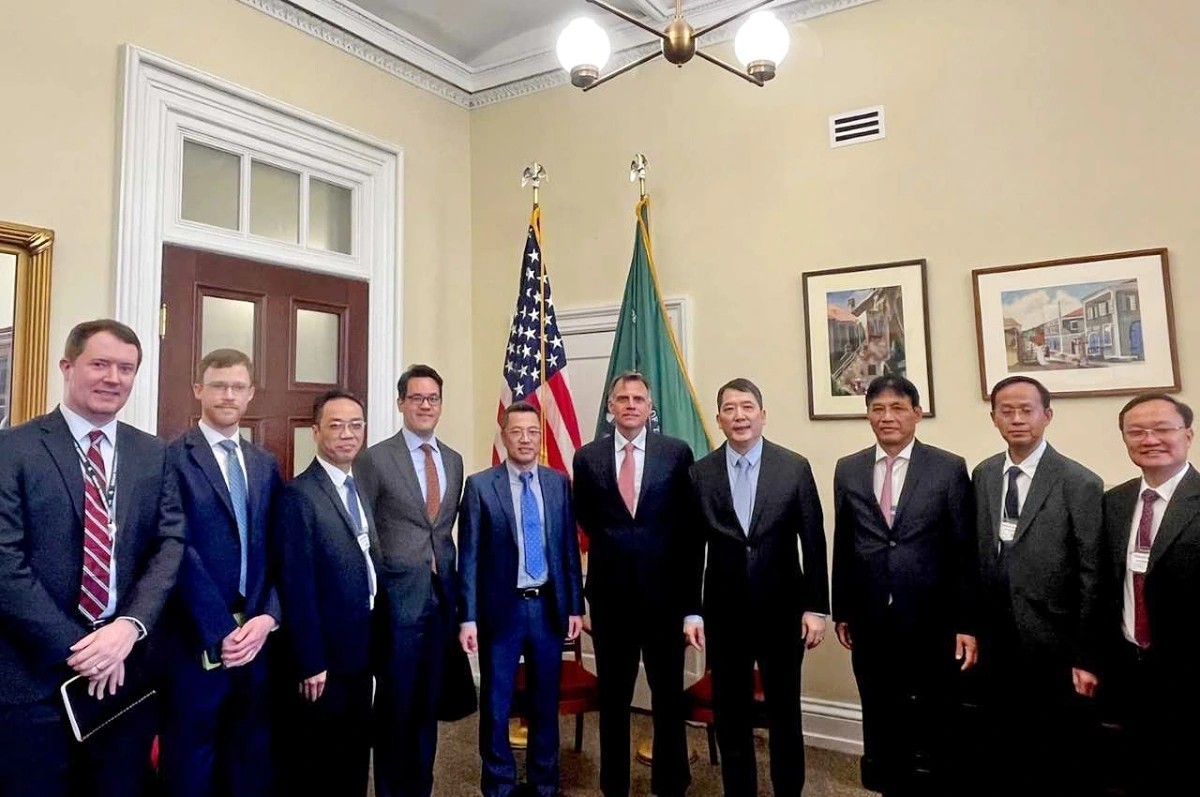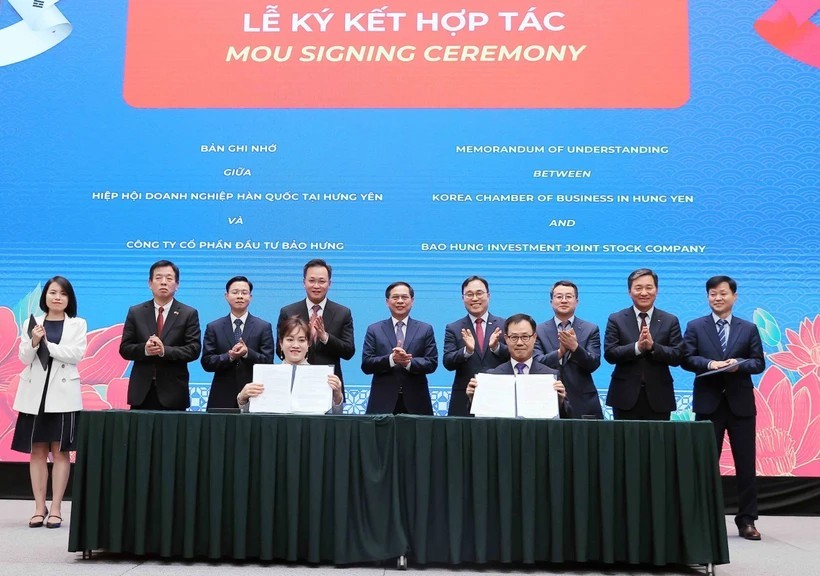Vietnam-European Union Cooperation in Responding to Climate Change (Part 1)
Vietnam - EU Cooperation in Responding to Climate Change - Cooperation for Sustainability
| Does Pakistan Comply with the European Union’s GSP Plus Regime? | |
| EU-funded Project Equips Young People in Cooperatives with Advanced Digital Tools |
The world enters the third decade of the 21st century with many challenges and unpredictable events. One of the most serious challenges is climate change. The harsh and extreme weather conditions around the world today due to the impacts of climate change are a significant barrier to the sustainable development of the world in general and each country in particular. The cause stems from the large amount of carbon emissions.
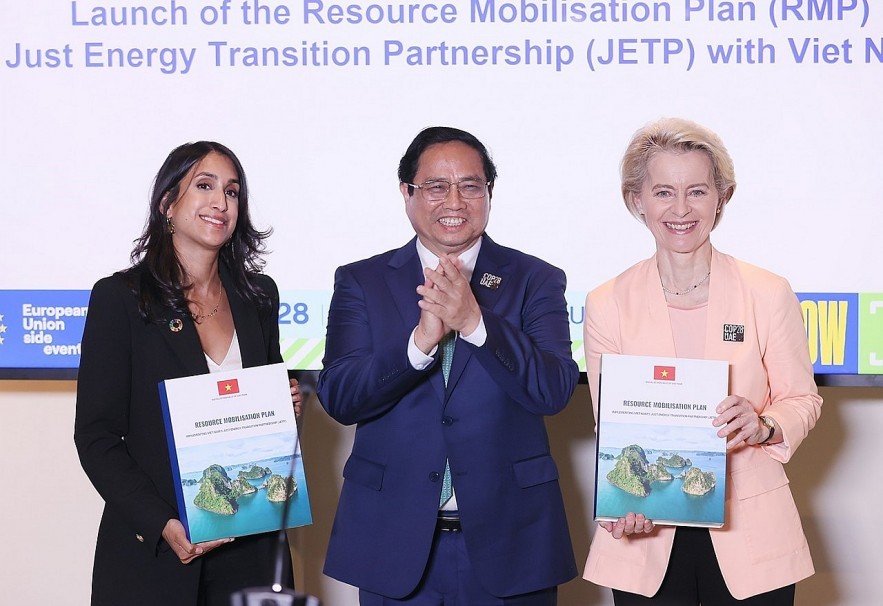 |
| At the 28th Conference of the Parties to the United Nations Framework Convention on Climate Change (COP28), Politburo member and Prime Minister Pham Minh Chinh handed over the Plan for Mobilizing Resources to Implement the Political Declaration Establishing the Just Energy Transition Partnership (JETP) to European Commission President Ursula von der Leyen and the representative of the UK government. (Photo: VNA) |
According to the US National Environmental Prediction Center, global temperature records have been broken consecutively in recent times. Wildfires, heavy rains, and floods have become more frequent in many parts of the world. In 2023, the global average temperature reached 17.01 degree Celsius, the highest since 1979. The Earth's heat has caused devastating consequences. Many places around the world are covered by a sea of fire from severe fires, forcing thousands to evacuate, and destroying countless properties. According to the EU's Copernicus Climate Change Service, the wildfire in the Evros region, near the port city of Alexandroupoli (Greece, August 2023), destroyed and burned about 808.7 square kilometers of forest - larger than the city of New York (USA). This is the largest wildfire ever in EU countries since 2006. Also in August 2023, in the historic town of Lahaina (Maui, USA), the most devastating wildfire in over a decade in the country occurred, killing at least 115 people, leaving 388 missing, and almost completely destroying the tourism and economic center of this town.
In addition to devastating wildfires, climate change has increased the frequency and severity of extreme rainfall events and storms. The catastrophic floods that hit Derna, Libya, on September 10, 2023, submerged the entire city and resulted in at least 11,300 deaths, 10,100 missing persons, and over 40,000 displaced people in northeastern Libya. Earlier, in August 2023, Super Typhoon Doksuri triggered severe flooding and landslides in the Philippines, causing the deaths of 25 million people, dozens missing, over 50,000 displaced, and widespread damage to homes, crops, roads, bridges, and infrastructure.
In October 2023, a flash flood in the state of Sikkim in northeastern India also killed at least 14 people, left more than 100 missing and affected 22,000 people. In addition, there are many other natural disasters caused by climate change, such as heavy rains, floods in China, the US, Greece, Turkey, Brazil, Spain, and ice melting in the Arctic and Antarctic. According to research by scientists, the minimum ice area in 2023 is 20% lower than the average level over the past 30 years. The amount of sea ice lost is equivalent to nearly 10 times the area of New Zealand. According to data from the Intergovernmental Panel on Climate Change (IPCC), it is estimated that under current conditions, the global average sea level is likely to rise from 8 centimeters (cm) to 29cm by 2030, with equatorial regions suffering the most. By 2070, the average sea level is predicted to rise by up to 70cm. Melting glaciers will cause global sea levels to rise, which, combined with heavy rains, will cause unusual flooding, leading to increasingly severe damage from natural disasters. The IPCC warns that about 900 million people living in coastal areas will be at risk of losing their homes due to rising sea levels and other consequences of climate change. In addition to the severe impacts on people's lives, rising sea levels will also cause more serious impacts on environmental, legal, political, technical, economic, cultural and human rights aspects.
It can be said that the world has never faced so many difficulties and challenges caused by climate change as it does today. Therefore, the international community needs to take urgent action, strengthen cooperation and solidarity to solve this problem, in which the first task is to reduce greenhouse gas emissions through global cooperation and adaptive infrastructure. Speaking at the United Nations Climate Ambition Summit held in New York City (USA) on September 20, 2023, Vietnamese Prime Minister Pham Minh Chinh emphasized that climate change continues to be the biggest global challenge, directly affecting and causing heavy losses to economic development, social security and directly to the safety of people's lives and health. Therefore, Prime Minister Pham Minh Chinh believes that addressing climate change must have a global and people-wide approach, with breakthrough, comprehensive, comprehensive, innovative and creative solutions. At the same time, he called for more urgent, stronger and more responsible action to limit the increase in the Earth's temperature as much as possible.
Meanwhile, UN Secretary-General Antonio Guterres stressed that if governments continue to implement current environmental policies, the world will become 2.8 degree Celsius warmer by the end of the 21st century. This means the world will become more unstable and dangerous. Therefore, he called on countries to set ambitions on reducing greenhouse gas emissions in line with the goal of maintaining global temperature increase at 1.5 degree Celsius, in which countries with large emissions need to take the lead in this global campaign, developed countries need to achieve net zero emissions by 2040 at the latest and this deadline for large emerging economies is 2050. In particular, developed countries need to support developing countries, because this is in line with their shared responsibility. Furthermore, only by strengthening cooperation, close coordination and promoting links between countries, between countries and international economic organizations and intergovernmental organizations, including cooperation between Vietnam and the EU, can we respond to global challenges, such as climate change.
Vietnam - EU cooperation for sustainable development
Vietnam - EU development cooperation journey
On November 28, 2023, Vietnam and the European Union celebrated the 33rd anniversary of their diplomatic relations, which began in 1990. This milestone comes at a time of significant progress in the bilateral relationship, marked by the successful implementation of the Vietnam-European Union Free Trade Agreement (EVFTA), which entered into force on August 1, 2020. Furthermore, the European Parliament and the Vietnamese National Assembly have ratified the Vietnam-European Union Investment Protection Agreement (EVIPA) in December 2022, paving the way for its ratification by the parliaments of EU member states. These developments signify a major leap forward in economic cooperation between Vietnam and the EU.
It can be seen that the EU - with 27 member states, has always been one of the important partners in Vietnam's cause of innovation and international integration as well as in jointly responding to global challenges. The establishment of diplomatic relations between Vietnam and the EU (then the European Community, with 12 member states in Western Europe) in 1990 was an important event, marking a new development step in Vietnam's foreign relations and international integration process implemented in the spirit of the Resolution of the 6th National Party Congress (December 1986). The Vietnam - EU cooperation relationship was initiated on humanitarian issues, overcoming the consequences of war, followed by the signing of the Framework Agreement on Cooperation between the two sides in July 1995. Since then, the EU has accompanied Vietnam throughout the challenging period of international integration with many important support activities.
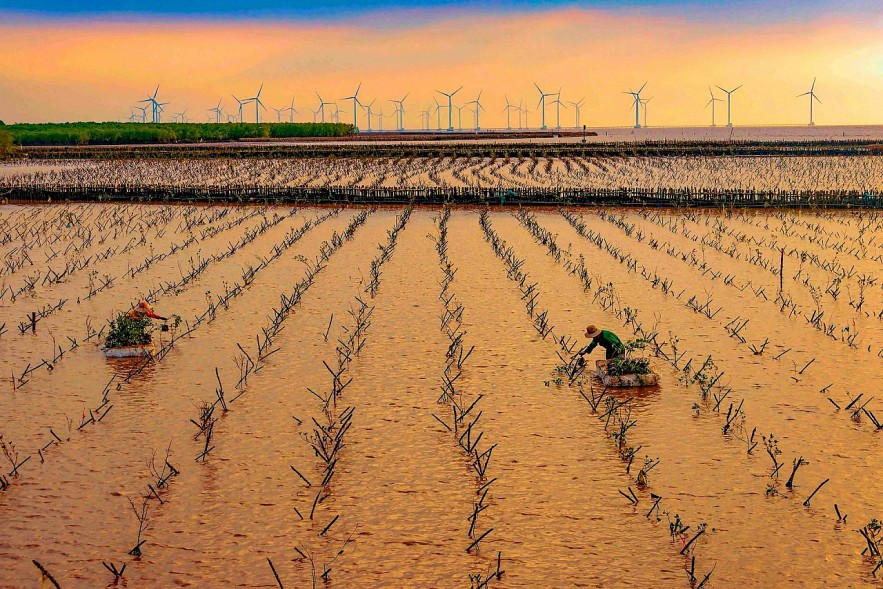 |
| Vietnam is currently transitioning its economic model towards green and sustainable growth, balancing economic development with environmental protection. (Pictured: Mangrove planting in Bac Lieu). Photo: nhiepanhdoisong.vn |
Firstly, the EU has been actively supporting Vietnam in policy formulation and institutional capacity building, thereby contributing to the country's international integration. This support has been implemented through various programs and projects, notably the EuroTAPViet program (1994-1999), the largest EU technical assistance program in Asia, and the Multilateral Trade Policy Assistance Program (MUTRAP) (1998-2017).
Secondly, the EU has been one of the largest providers of Official Development Assistance (ODA) to Vietnam. Between 1993 and 2013, EU ODA accounted for 20% of total commitments from international donors to Vietnam, with EUR1.5 billion (US$1.6 billion) in grants. During the 2014-2020 period, the EU provided EUR400 million (US$428.9 million) in aid to Vietnam, focusing on sustainable energy and institutional capacity building. EU ODA projects have effectively supported Vietnam's socio-economic development goals. Moreover, the two sides have strengthened cooperation in culture, arts, heritage preservation, education, and people-to-people exchanges.
Thirdly, Vietnam and the EU share a common perspective on multilateralism, the role of international law, and the importance of multilateral institutions in global governance. Both sides regularly consult and coordinate their positions on a wide range of global and regional issues of mutual interest, including peace and security, climate change, the COVID-19 pandemic, rules-based trade liberalization, sustainable development, and non-traditional security challenges.
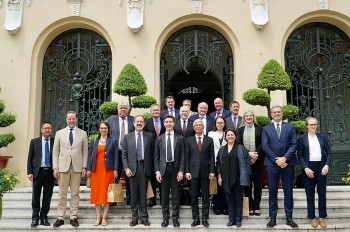 | European Countries Want to Cooperate with Ho Chi Minh City on Green Transition Through studying Ho Chi Minh City's priority development areas, European countries determined that they could promote cooperation in a number of strong areas such as ... |
 | European Union To Strengthen Cooperation With Viet Nam Union of Friendship Organizations On April 23, Vice President of the Viet Nam Union of Friendship Organizations Nguyen Ngoc Hung received a delegation of the European Union Delegation to ... |
Recommended
 Focus
Focus
Strengthen Solidarity and Friendship Between Vietnam and Venezuela
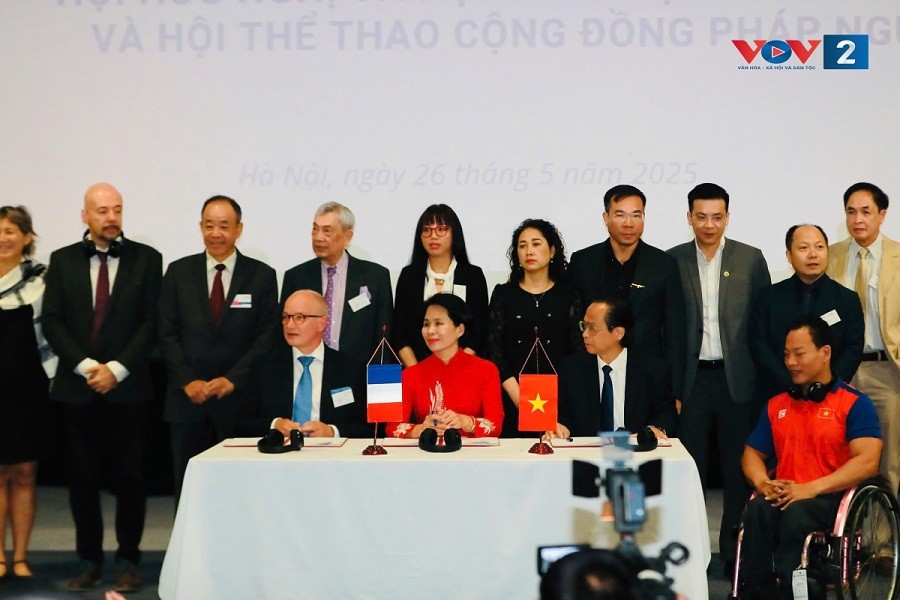 Friendship
Friendship
Vietnam, France Promote High-performance Sports
 Friendship
Friendship
Concert In Hanoi Highlights Vietnam - Azerbaijan Ties
 Focus
Focus
"Vietnamese - Cuban Children, Deep Friendship" Painting Contest Announces Winners
Popular article
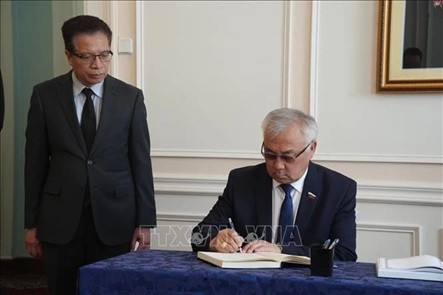 Friendship
Friendship
Int'l Friends Pay Final Respects to Former President Tran Duc Luong
 Focus
Focus
Solid Bridge for People-to-people Relations between Vietnam and Germany
 Friendship
Friendship
Vietnam, Cuba to Boost Cooperation in Health Sector
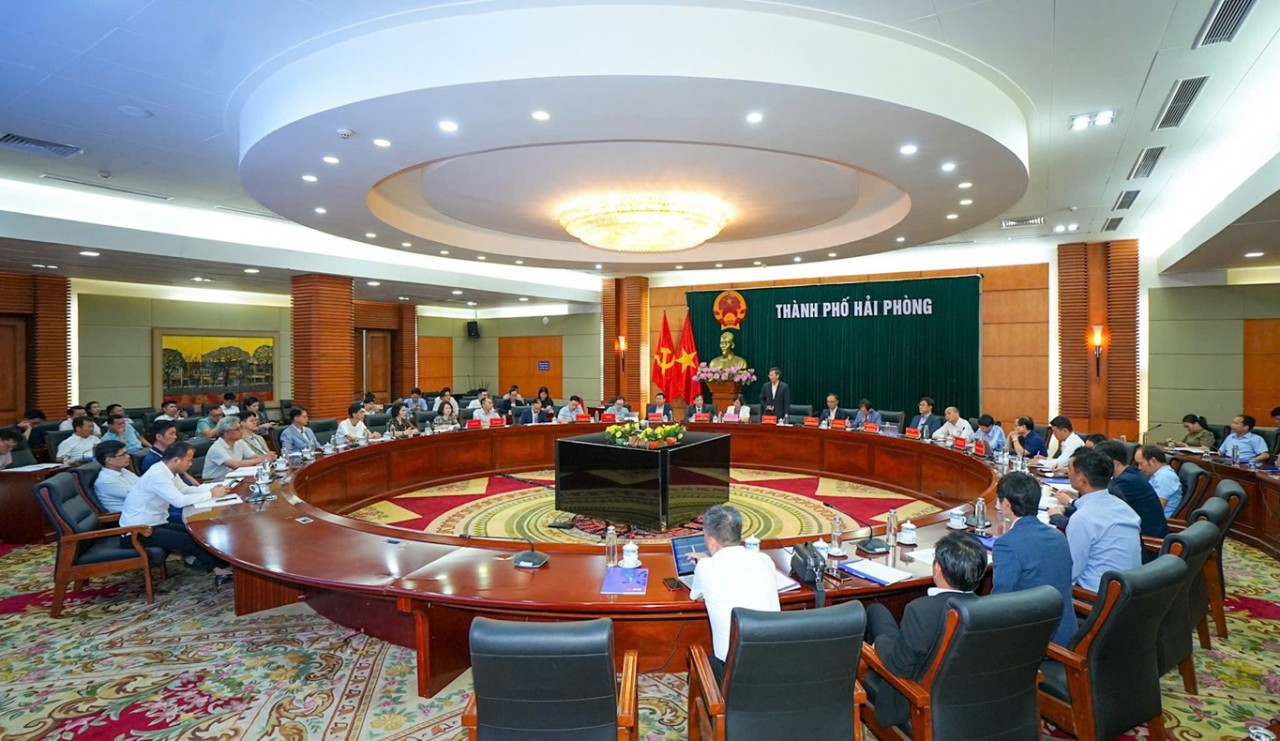 Friendship
Friendship





